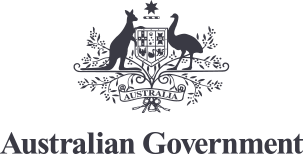715 Health Check - your health is in your hands
health_715.jpg

The 715 health check is a preventative health assessment designed specifically to support the health needs of Aboriginal and Torres Strait Islander people.
Health service Awabakal has been looking after the health of the Newcastle mob for more than 40 years.
Acting Awabakal CEO, Toni Johnston has seen first-hand the benefits of the 715 health check to the community.
‘A 715 health check is critical to the overall health of our Aboriginal community. We make sure that our community are coming in, accessing the service and getting their health check completed,’ said Toni.
‘It is important our GP's build rapport with our patients and our community to get them the health support that they actually need. We want to get to know you, as a person, your health is a key part of that.’
Awabakal GP, Dr Joyce Hyde couldn’t agree more.
‘The 715 Health Check is a really important part of how we keep our mob healthy. It's a really good health assessment that checks on physical, social and emotional health to keep us all as healthy as we can be,’ Dr Joyce said.
‘After a 715 Health Check we see that people are more aware of what their health is like, as it is. They're more aware of what they need to do to improve their health, and we have a better connection in terms of medical staff and patients to work together to help health improve.’
For born and bred local, Rod Smith, the 715 health check has helped him look after his mental health.
‘Like many Aboriginal men, I grew up thinking that men don't cry – that men have to be tough. I’d always been a happy go lucky person but as I got older I experienced a few hurdles in life. I got to a point one day where I started thinking negative,’ Rod said.
‘Like most men out there, I thought, if I go and talk to a doctor about mental health, does that mean I'm crazy?’
‘It was that fear creeping in. That's a big reason why a lot of Aboriginal people don't go for a health check. It's the fear of what they're going to find out.’
‘But I did it; I got the 715 health check and I found the mental health aspects of the 715 so valuable. I’m now a member of the Awabakal team myself, looking after our promotions.’
It’s a whole of team commitment to looking after the mob’s health at Awabakal.
Simone Jordan, Community Relations manager, helps people like Rod to overcome the fear and other barriers to going to the doctor and getting a health check.
‘There are different barriers for people. I think the main one is making the time; reminding people to look after themselves, have that self-care. Aboriginal mothers, we tend to look after everyone else and forget ourselves. So, we're trying to instil that your own health is important,’ Simone said.
Patients that complete the 715 health check are able to access a range of support services to better manage conditions and stay in good health. At Awabakal, this includes nutrition and diet programs, dental care and family and youth support services.
‘I can't stress how important they are. A 715 health check gives us a whole range of options then to refer you to our other services. We look at how we can make looking after your health, part of everyday normal life,’ Simone said.
Dr Joyce has a simple message for the region.
‘Come on in, have a yarn to us and get your 715 health check done today. Your Health is in Your Hands,’ Dr Joyce said.
‘Yes! Looking after your health, you’ll be kicking goals,’ acting CEO Toni added.
The 715 health check is free at Aboriginal Medical Services and bulk billing clinics, and is available annually to Aboriginal and Torres Strait Islander people of all ages.
